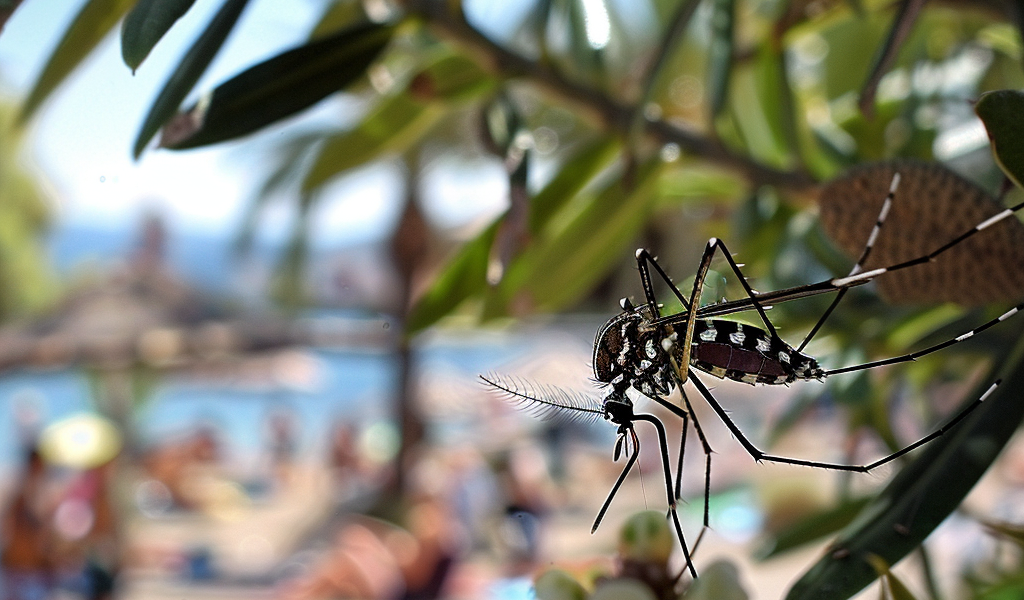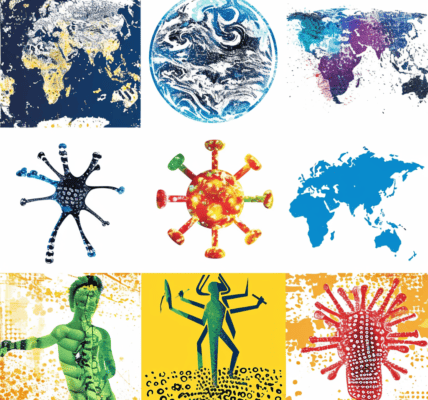As summer heat intensifies in Palma, with temperatures soaring to 32ºC, the focus shifts to the rising threat of mosquito-borne diseases across Europe, particularly in the Balearic Islands. With climate change creating favorable conditions for the proliferation of invasive species like the tiger mosquito, local authorities are taking proactive measures to combat this growing concern.
A Spanish laboratory, funded by the regional government, has embarked on an innovative project aimed at breeding and sterilizing tiger mosquitoes to mitigate the spread of diseases such as dengue fever. The Biological Pest Control Centre in Valencia is at the forefront of this initiative, utilizing advanced technology to release approximately 45,000 sterilized male mosquitoes each week into the environment.
Vicente Dalmau, a representative from the Valencia region’s health, agriculture, and fisheries department, highlighted the urgency of the situation: “It’s a species that is becoming more common with climate change. There is a favorable environment for its development for longer periods of time throughout the year, and its populations are increasing all the time.” This statement underscores the necessity of addressing the issue as the climate continues to change, allowing these invasive species to thrive.
The process of mosquito sterilization involves a series of sophisticated steps. Initially, the lab collects specimens from the local area. Scientists then employ a machine to separate the female pupae from the males, ensuring that only the male mosquitoes are subjected to sterilization. This is achieved through the use of radiation, which renders the males incapable of reproduction. Once released, these sterilized males mate with the wild females, ultimately leading to a decline in the mosquito population over time.
While sterilization techniques have been implemented in various parts of the world, this initiative represents a pioneering effort in Europe, particularly in light of the increasing prevalence of mosquito-borne diseases. The laboratory’s experience with similar techniques used on fruit flies has laid the groundwork for this groundbreaking project.
Data from the European Centre for Disease Prevention and Control reveals a troubling trend: an uptick in cases of dengue fever being imported from regions where the disease is endemic, alongside a rise in local outbreaks of West Nile virus and dengue within Europe. As these diseases become more common, the need for effective control measures is more pressing than ever.
The tiger mosquito, scientifically known as Aedes albopictus, is notorious for its ability to spread rapidly across various regions. Its presence has been confirmed in numerous countries, with populations expanding north, east, and west throughout Europe. This expansion poses significant risks to public health, particularly in tourist-heavy areas like Mallorca, where the warm climate creates ideal breeding conditions.
In response to this alarming situation, Palma’s local council has initiated aerial operations to combat mosquito populations effectively. These measures aim to reduce the number of mosquitoes in urban areas, thereby minimizing the risk of disease transmission to residents and visitors alike.
As the summer progresses and temperatures remain high, residents are encouraged to take personal precautions to avoid mosquito bites. Simple yet effective strategies include wearing long-sleeved clothing, using insect repellent, and ensuring that standing water is eliminated from around homes and public spaces, as these areas serve as breeding grounds for mosquitoes.
Public awareness campaigns are also being launched to educate the community about the importance of mosquito control and the risks associated with mosquito-borne diseases. These initiatives aim to empower individuals to take action and contribute to the collective effort of reducing mosquito populations.
In conclusion, as Palma enjoys the summer sun, the city is also facing the challenge of managing the increasing threat posed by mosquito-borne diseases. With innovative approaches such as mosquito sterilization and proactive community engagement, local authorities are working diligently to safeguard public health. The fight against the tiger mosquito and the diseases it carries is ongoing, and it requires a united effort from both officials and the public to ensure a safe and enjoyable summer for all.





